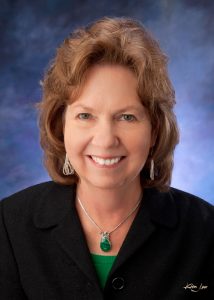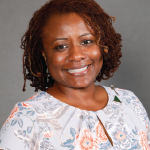This week, long-time ARP member Janet Poole, PhD, OTR/L, FAOTA, becomes the organization’s 51st president. Dr. Poole is a professor and division chief of the occupational therapy graduate program in the School of Medicine at the University of New Mexico, Albuquerque. Her research has focused on scleroderma and other rheumatic diseases, specifically how they impact the ability to perform daily life tasks.

Dr. Janet Poole
Over the years, she has conducted numerous studies examining rehabilitation interventions for patients with scleroderma, co-developed a self-management program called Taking Charge of Systemic Sclerosis (TOSS) and authored several textbook chapters on rehabilitation for people with the disease.
Dr. Poole has been very active in the ARP since joining more than 30 years ago. She has served on the Executive, Practice, Membership, Research and Annual Meeting Planning committees. She was a grant reviewer for the Rheumatology Research Foundation Study Section and ARP liaison to the ACR’s Education and Research committees. The ARP has also recognized her efforts and accomplishments with several awards: Master Clinician (2012), Master Educator (2014) and Distinguished Lecturer (2018).
The Rheumatologist spoke with Dr. Poole about the ARP’s priorities and the challenges and opportunities that lay ahead.
The Rheumatologist (TR): In recent years, the ARP has focused on three key areas: securing more funding for arthritis research, advocating for legislation on regulatory relief and prior authorization reform and attracting more healthcare providers to the field of rheumatology. As ARP president, will you pursue different goals or priorities?
Dr. Poole: I plan to address the workforce shortage by encouraging more health professionals from different disciplines to enter rheumatology. There’s an approaching tsunami of people who are turning 65 years of age. Many of these older adults will develop rheumatic diseases, such as osteoarthritis, osteoporosis and other musculoskeletal conditions. We willl be in an ideal position to continue building our ARP interprofessional membership team by developing educational and other resources and promoting the rheumatology field to nurses, pharmacists, occupational therapists, physical therapists, social workers, nurse practitioners, physician assistants, health educators, practice managers, psychologists and others. They’ll all be needed to manage the health of this influx of older people. As part of this communication, recruiting and education campaign, the ARP has already created flyers that describe benefits of membership to healthcare professionals in different disciplines. Hopefully, within the next several years, our efforts will help boost ARP membership and most importantly, improve the lives of people with rheumatic and musculoskeletal diseases.



